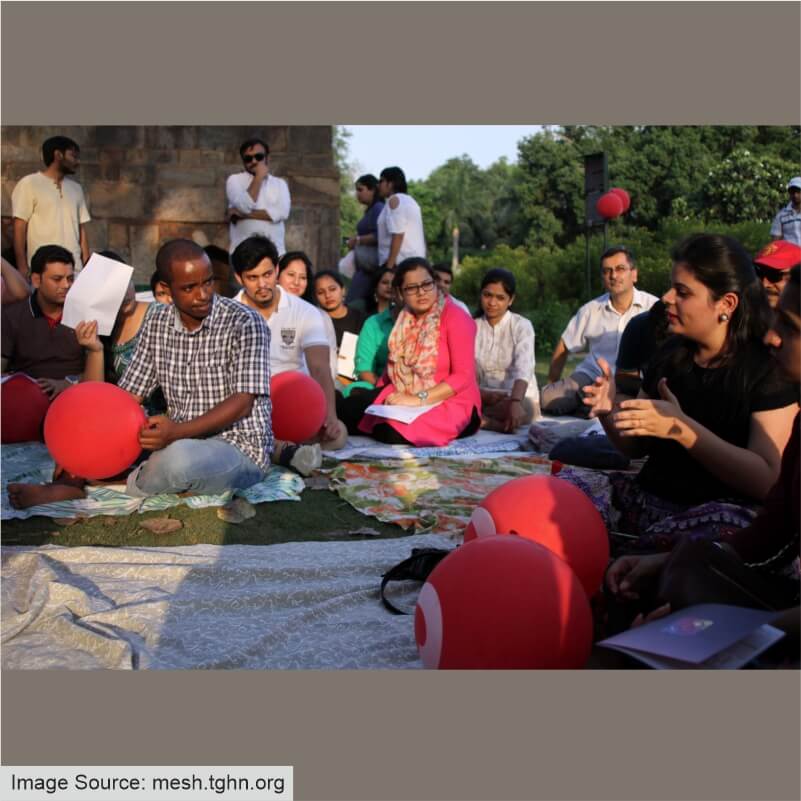The term mental health denotes a person's mental wellbeing in relation to their feelings, thoughts and emotions. In September 2015, the United Nations. included "Mental Health" to its list of Sustainable Development Goals. The activist and other organizations stood up for this cause via a worldwide initiative known as the FundaMentalSDG. This led to the United Nations recognising the significance of mental health and illness as the top issue for global growth and success.
The United Nations global initiative in the Sustainable Development Goals (SDGs) is to create a sustainable and fair society. Mental Health serves a crucial pillar in this endeavor since the World Health Organisation (WHO) admits that “there can be no health or sustainable development without mental health”. Progress has been made in the field of mental health, but there are many countries left behind where more efforts need to be taken in order to achieve these SDG targets
Mental Health plays an important role in physical health as a precondition for mental health, which in itself is closely related to other development elements like poverty, employment and economic growth, or peace and justice. In order to achieve social inclusion, universal health care, equity, access to justice, and sustainable economic development, it is crucial to prioritize mental health. In the same way, economic development (SDG 8: Decent Work and Economic Growth) and safe and stable cities and communities (SDG 11: Sustainable Cities and Communities) depend on a mentally healthy society. There is also a clear correlation between (SDG 1: No Poverty) and (SDG 3: Good Health and Wellbeing). Majority of people have experienced mental health disorders as a result of the pandemic but were unaware of their condition. Mental health is a universal concern that affects all stages of life.

Importance of Community Mental Health
Millions of people suffer from mental health, and the numbers are continuously rising. Although, poor mental health and mental illness are not the same. A person can experience poor mental health and not be diagnosed with a mental illness. Likewise, a person diagnosed with a mental illness can experience periods of physical pain. The social and economic costs associated with the growing burden of mental health focused on the possibilities for promoting mental health, treating and preventing it. Mental health is linked to one’s behavior and is seen as fundamental to physical health and quality of life. It is necessary to understand and promote mental health as it is a universal health problem.
Spreading mental health awareness is essential as it helps to counter approaches and issues in our society. When everyone is aware of mental health issues, they can recognise the problem, find solutions and eradicate the stigma and fear around mental health. This encourages others to request for aid when needed. Our combined efforts can deliver the groundwork for a culture that values and recognises the significance of mental health. Focusing on mental health awareness has the added benefit of making it easier to recognise the signs and symptoms of specific illnesses. Early intervention leads to better response in the treatment procedures. The likelihood that someone would manage their disease and improve their mental health increases the sooner they are diagnosed and start receiving therapy.
Recent detailed investigations reveal that neurological disorders such as dementia and epilepsy account for 3% of the worldwide burden of disease as measured by Disability Adjusted Life Years (DALY). While mental and behavioral issues account for 7.4%, nearly 25% of all problems worldwide are mental and behavioral. As a result, mental illnesses and psychosocial disabilities account for more causes than cardiovascular diseases and cancer. Not only can mental health issues lead to severe and long-lasting disability, but they can also cause a significant impact in excess mortality.
According to the World Health Organization 2020 strategy, mental health concerns will have to be addressed to overcome several obstacles. Furthermore, while most nations are less strained financially by mental illness, they may invest less in developing better diagnostic methods and forms of treatment. Even the most developed countries in the world have trouble with this development. Some physical health problems are connected immediately to mental health, such as cancer, heart disease, stress etc.

Steps that are being taken to enhance Community Mental Health
During all our stages of life, from childhood to adulthood to old age, mental wellness is a crucial aspect. We need to take precise action to improve our mental health because it affects how we live. Availability and accessibility of services for people with mental health illnesses greatly outweigh the need for services for the patient and their families. The government schemes and support and the providers of healthcare must be strengthened. The Non-Government Organization (NGOs) are in and promote mental health on a big scale (MHNGO). Some of the MHNGOs that are actively working are Sangath Society (Goa), the Medico-Pastoral associatio (MPA) in Bangalore, Umeed and the Research Society (Mumbai) and so on. Majority of the MHNGOs operate in particular remote areas and some have expanded their service areas to include various cities or regions. Despite significant difficulties encountered in creating mental health programmes, it is encouraging to see the accomplishments made by many of them across the country. It seems that there are existing mental health specialists in these places, who are often crucial in guiding the expansion of NGO-based services. The concept of child mental health has also evolved considering the impact of childhood adversities on one's mental wellbeing. It has led to the inclusion of mental health problems observed in children, such as autism, ADHD, and conduct disorders, as opposed to its earlier emphasis on mental retardation.
Some of these MHNGOs have already employed full-time professionals at the local medical school. Severe mental illnesses are primarily their areas of interest. These MHNGOs rely on donations from members of the public or donor organizations because government financing support is scarce. Due to their well-known research credentials, few have succeeded in acquiring research funding.

The various concerns that are being addressed to advance the health of those suffering from mental illnesses are;
Treatment: Rehabilitation and CareRehabilitation and care are prioritized by providing medical care and tragically neglecting psycho-social rehabilitation (PSR). PSR activities have been kept out of the mainstream of psychiatric treatment because of a lack of trained personnel to conduct them. Thus, NGOs take it upon themselves to address this issue. Numerous activities are included in this programme, like family support and counseling, individual and group counseling, leisure activities, and vocational rehabilitation. Individuals can reach out to out-patient clinics, day care programmes, and long-term, in-patient care residential care.
Research and TrainingRecently, quality service and advocacy connected to mental health activities became the top priorities of organizations working for it. Research is observed to be an essential and a scholarly activity. The MHNGOs are currently at the forefront of medical research. Today, major research initiatives in areas of health as diverse as infectious illness and nutrition are performed by NGOs and MHNGOs. It is important to mention here an example of work done by Sangath Organization in Goa, India. Such studies enhance the quality of work in the field of mental health and thus they should be promoted and conducted on a wider scale.
Community Programmes and PreventionEven though the National Health Program was started in 1983, standards for mental health care were merged with already-existing primary healthcare services and are still mostly a pipe dream nationwide. Multiple community-based health initiatives are by NGOs, with a focus on the services that they provide to the local groups, both off-site and domestic activities. Thus, NGOs have turned out to be an accessible option to approach, build relationships with, and discover programmes for support.
A community environment conducive of significant communication and availability of resources, is essential for supporting mental health under the SDGs. A combination of all the SDGs serve resolutions to the fact that poverty, natural catastrophes, and conflicts frequently pose serious dangers. However, to accomplish all the health targets aligned to the 2030 agenda, a detailed action plan and indicators to measure such success needs to be implemented.
Most health problems will not exist if we identify and intervene in its mental health aspect early in life.
